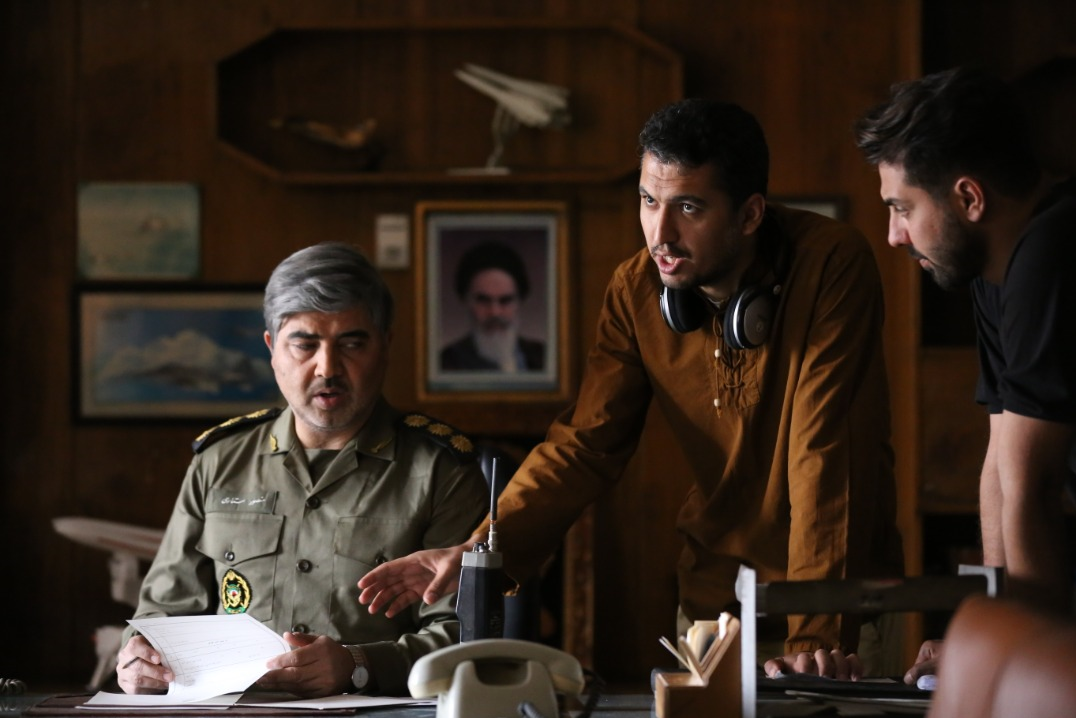Is television screening useful or harmful? / Movies that are produced for television!

Fars News Agency-Cinema Group: In the past years, the production of films was divided into two categories: the production of television and cinema works, so that some films were produced for the medium of television and others for the medium of cinema, although it was possible to broadcast some films on television after they were released in cinemas.
* The beginning of the path to the entry of cinematographic works into television
But last year, for the first time, an innovation was created in this cycle during Nowruz, two films “Sniper” produced by Fatah Cultural Foundation and “Yidu” produced jointly by Farabi Cinema Foundation and Children and Adolescent Intellectual Development Center were entered into the Nowruz conductor of Sima before the movie screening.
This happened at that time under the pretext of the spread of the Corona virus and the low acceptance of cinemas by the people due to the risk of disease.
In the same year, Saeed Khani, a cinema broadcaster and the director of Khanefilm Broadcasting Institute, said in response to the telecast of the two mentioned films: “Broadcasting new films through television causes the release of the smuggled version of the film, and of course we know that the films have sacrificed themselves to the circumstances.”
This broadcaster continued: This work can only be good on the condition that the television pays enough money to buy the broadcast that 80% of the film production costs are compensated, because with what has been in this sector so far, it will be 100% to the detriment of the owners of the films and the cinema. It is at risk.
*The presence of movies on TV continued
After doing this last year, apparently this action has lost its meaning; Because Nowruz 1402 was also accompanied by the television broadcast of several movies before their release, so that this happened again and the movies “Hook”, “High Power” and “Number 10” were broadcast on TV during Nowruz.
If you take a look at the names of the works broadcasted from the TV frame and their background, you will reach a common name in all the works; Farabi Cinema Foundation owns all these works.
You might think that this sacrifice of Farabi is for the benefit of the audience; But in fact, by selling films to Sedav Sima, this film foundation has compensated part of its financial loss from making them and entrusted Sima with films that have no hope of recouping their costs at the box office.
* Is the opinion of the creators similar to Farabi?

Azimi: Personally, I am not in principle in favor of televising a movie before its public release, maybe the owner makes such a decision based on economic interests or some other considerations.
At first glance, this could appear to be a positive action for Farabi; But cinematographers and film producers have a different opinion, and the hidden dimensions of the story show that in fact the money of Bait-al-Mal was spent on works that are not of much quality.
Mohammad Reza Sharafuddin (producer) says in this regard: I do not agree that we invest in films whose consumer is the government itself. The film should be liked by the audience while maintaining religious and revolutionary values.
Mehdi Azimi Mirabadi, producer “High Power” After announcing the news of the television broadcast of this film, he said in an interview: “When a film is produced in a cinema format, it is not like that they do not look for its public release. Personally, I am not in principle in favor of televising a movie before its general release. There is a time when it is a rule that some film productions are made-for-television, but this is usually not the case. Last year, I did not agree with the telecast of the movie “Sniper” and I tried my best to convince the friends of the Narration Foundation not to do this, but because the owner of the movie had already made his decision, in the end I could not stop him. In these cases, the main decision maker is the film owner. Maybe the owner makes such a decision based on economic interests or some other considerations.
Mehdi Azimi Mirabadi said in this regard: As the telecast of the movie “Sniper” damaged its cinema release, it is not appropriate to repeat this for other movies because it makes the cost of advertising in the cinema unjustifiable. Of course, in general, I believe that this is not the right way for television to compensate for its shortcomings by broadcasting films unveiled in the Fajr festival that have not yet been released to the public.

Hook was another production of the Farabi Cinema Foundation, which was transferred to television without being released to the public. Ali Ashtianipour (producer of the movie Hook) says about this: The opinion of Farabi’s friends is that considering the two limited showings of the film on television and the situation that television has in terms of audience these days, there will be no harm to the general release of the film, and we also hope. Let it be like this. I believe that the film will be damaged, but this decision is related to the ownership rights of the film, which is in Farabi’s possession, and I do not know the details. If you can, ask friends to answer.

Another work that was broadcast on television against the opinion of its creator “number 10” It is made by Ebrahim Zargrenjad and produced by Ebrahim Asghari, a producer who previously had the experience of broadcasting the movie “Sniper” on TV last year as a producer of this work, a film which after being broadcast on TV also entered the cinema cycle and of course failed. There was a prediction before.
Like the producer of “High Power”, Asghari reacted to this incident; But in his interview, he raised new criticisms and content.
Asghari wrote a letter to the head of this organization before the broadcast of his film on Sedavasima and demanded the delay of “Number 10” television broadcast.
Asghari: Maybe they think that by doing this they can increase their audience, while basically, this kind of work is first to the detriment of the holy defense cinema and then the cinema itself.
After Sima did not accept his request and broadcast this film, he said in an interview: “However, the owner of the film is the Farabi Cinema Foundation, and according to the foundation’s decision, the film was handed over to the Broadcasting Organization for broadcasting.
My criticism is more towards this organization, which has been buying the rights to broadcast unreleased movies, especially the Holy Defense movies, for two or three years. I had this experience for the movie “Sniper” and no matter how much we tried to prevent the movie from being broadcast before the release, we did not succeed. “This wrong procedure started in the previous period of radio and television management and it is still continuing because they think that they can increase their audience by doing this, while basically, this kind of work is first to the detriment of the holy defense cinema and then the cinema itself.”
Asghari said of the benefit of broadcasting and of course it goes without saying that this work will increase the audience of the national media and maybe it will be a win-win for these two governing institutions in order to finance Farabi. However, many questions remain unanswered.
However, according to the statements of these two producers, the continuation of this incident is not ideal for the cinema and its people, and only covers a part of Farabi’s financial loss. The specialized medium itself produces the film for television.
Journalist and film critic Reza Montazeri said about the broadcast of films that have not yet been shown on the cinema screen but were broadcasted on TV channels:
Montazeri: This incident is very impressive, first of all, what is the reason for us to produce television works in the cinema with the budget of the cinema, and this is the same debate that has been raised for years.
“This incident is very impressive, first of all, what is the reason for us to produce television works in the cinema with the budget of the cinema, and this is the same debate that has been raised for years. The country produces low-quality films in terms of structure and content, which are included in the form of telefilms, and cinema organizations use systematic budgets to produce these works. I believe that if there is a bit more tact and prudence on the part of movie directors and there is a more serious look at the phenomenon of the seventh art, the situation will settle down a bit.”
*A strange incident; A telecast of a movie being released
But what is more strange in relation to the television broadcast of cinematographic works was an incident that happened a while ago, and of course, it involved a work of the Farabi Cinematic Foundation.

The movie “Storm Children” was produced by the Farabi Cinema Foundation, which is currently experiencing a failed release on the cinema screen, and according to the statistics of Samfa, it has sent only 476 audiences to cinema halls.
This movie was suddenly and in an unprecedented event on the 12th of April, broadcasted by the Omid network, so that it could be broadcast on television at the same time as it was screened in the cinema.
Of course, this incident did not end with the efforts of the director Of course, Sadegh Zakhi also denied Farabi’s participation in the making of “Storm Children”. And he said that this foundation has contributed only 200 million tomans to this film.
Naturally, with this amount of participation, Farabi did not have the ability to decide on the television broadcast of the film, and in this way, Sadeq Sadegh’s detailed work was saved from being broadcast on television at the same time as it was released in cinemas.
*Conclusion
Among all these propositions, we should not forget that these days, the main concern of the cinema organization and institutions related to cinema should be directed towards the revival of the country’s cinema. Screening movies in cinema halls can create a good opportunity for the country’s cinema. As the films are broadcast through other mediums before the release, the cinema basket will be empty of these films.
Finally, many critics consider this a sinister phenomenon for the country’s cinema. In this regard, Montazeri said: “Unfortunately, we are not only witnessing this happening, but we are also witnessing even more strange events, and it is interesting that before the release of a movie, the television buys that work to broadcast it.” Also, in addition to the neglect of movie directors, this condition shows that active movie producers are professionals and it is clear how much these people care about business. Both they take government funding for film production and they don’t wait for the release and sell that work to TV.
In the final analysis, although broadcasting movies on TV is beneficial to this medium, it hurts the cinema’s economy. Because it is no longer possible to screen these movies after they are broadcast on TV, and if it happens, the experience will be similar to the movie “Sniper” and no one will want to see them in the cinema.
end of message/

